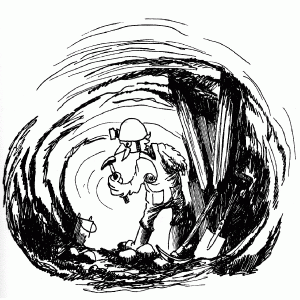How Riddles Can Improve Memory & Thinking
By Kevin McLaughlin – 2010
When you get down to basics most of human life is focused on problem solving. From basic needs to supplying food and providing shelter to more advanced stages including career advancement and financial management life seems to be a series of riddles and puzzles that we have to navigate in order to survive and enjoy life. Many people see riddles and puzzles as child’s play but in fact these simple games and clever problems are structured to make the brain work to find solutions that aren’t readily available. Another important lesson riddles and puzzles teach us is that there is no one answer to any particular problem and that the more we train our brains to think the better we become at solving problems no matter how big or small.
Riddles are classified as two types: enigmas which are problems generally expresses in metaphorical or allegorical language that require ingenuity and careful thinking for their solution and conundrums which are questions relying for their effects on punning in either the question or the answer. Some people get very flustered with riddles because the answers aren’t always as clear as a basic math problem. In mathematics when you add 2 + 2 you always get 4 but think of riddles in terms of algebra where 2(y) + 2(x) may not equal 4. Riddles force the brain to stretch beyond rote memory and automated responses to challenge our ability to think through a problem. This is why many math teachers want to see how you arrived at an answer rather than just giving one.
Though many detractors find riddles and puzzles trivial the fact of the matter is that such brain training games sharpen the mind and open up new areas of thought processes that can lead to better problem solving techniques. Many of us like answers to be simple and plain to avoid having to think too hard. We have enough problems and obstacles in our lives that the last thing someone wants is the added hurdle of having to solve a riddle too. But when you practice riddles and problem solving on a daily basis you’ll be surprised to see how much easier thinking, memory retention and cognitive abilities become with a fit and healthy mind.
Try not to think of puzzles and riddles as confusing and frustrating hurdles. When you think that way you’ve already given up. Rather look at brain training games as a way to be creative with you thoughts and to develop new strategies for solving a problem that can have many uses during your daily life. If it wasn’t for improved problem solving man wouldn’t be at the level of progress he is at. If we stayed with our animal instincts and failed to improve our thinking ability chances are we’d be in cages while apes gaped at us from behind the glass. Just as lazy is a habit with negative consequences brain training is a healthy habit that can only improve your brain and its ability to function.
For a terrific selection of free online brain games and brain training exercises visit http://www.brainist.com where you’ll find a fun and clever selection of riddles, puzzles, math problems and memory games to help improve the brains ability to function.
Article Source: https://EzineArticles.com/expert/Kevin_McLaughlin/405176
